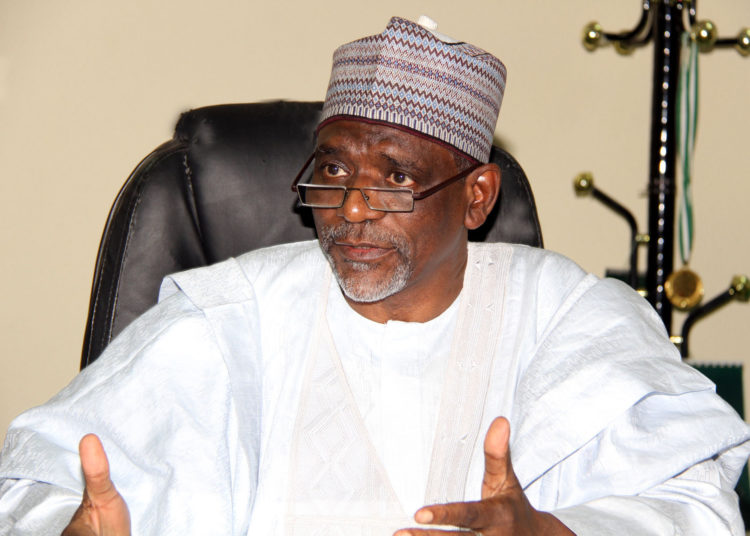The federal government has blamed state governments for the continuous rise in the number of out-of-school children in the country.
Minister of Education, Adamu Adamu, who stated this at the ongoing 66th National Council on Education (NEC) meeting in Abuja on Thursday, lamented that the states were not complementing government’s efforts in tackling the menace.
The United Nations Educational, Scientific and Cultural Organisation (UNESCO), in its latest global data, said Nigeria now has about 20 million out-of-school children.
Speaking on the theme, “Strengthening of Security and Safety in Nigerian Schools for the Achievement of Education 2030 Agenda,” Adamu called on all states to rise up to their responsibilities, and provide a safe and secure learning environment for both students and teachers.
He also advocated for the Ministry of Skill and Entrepreneurship and three Ministers of Education, to pilot the affairs of the Ministry.
“I already blamed states for the continuing number of out of school children. Actually, the reality is that the measures taken by the Ministry of Education is taking millions of out of school children out of street.
“I recommended to the president that there should be two Ministries of education, ministry of basic education and ministry of higher education. And if they don’t want to create another ministry, at least they should have two Ministers of state-one basic education, one should be in charge of higher education.
“I hope whoever is heading the next government will a good sense to create the ministry of skills and entrepreneurship and if it will not be created there should be three Ministers of state in the ministry of education. We need a ministry for that.
“Also I want to tell states that they are not doing enough on schools safety. I know it is a general menace but states should start doing what ministry of education is doing,” he said.
While saying it is the responsibility of governments to uphold the right to education for all by ensuring that all barriers are removed, he said all hands must be on deck to strengthen the security system of our educational institutions.
“Security and Safety in Educational Institutions Distinguished delegates, despite government’s best efforts and numerous interventions in the past, we are still confronted with the challenge of out-of-school children, which, in part is the result of the general insecurity in our society, which has now arrived at our institution following a spate of incessant attacks against public and private schools,” Adamu added.
Despite the challenges, Adamu said a lot of success have been recorded in the transformation of adult literacy learning spaces with up to 9,810 literate learners through the creation of access to 3 basic literacy centres in 3 three senatorial districts and one senatorial district in the FCT, among other areas.
In her remarks, the United Nations Children’s Fund (UNICEF) Chief Education Officer, Saadhna Panday-Soobrayan
said attacks on schools and violence in and around schools are having devastating short and long-term consequences on the wellbeing of children and communities.
She said getting children into school and keeping them there is therefore critical to end the security challenges in the country.
“UNICEF strongly believes that quality education, especially for the girl child, is the single most effective investment a country can make to ensure safety and security and the economic wellbeing of the country.
“Nigeria has a strong policy landscape in support of safe schools. We know what to do to keep our children safe in schools. What is now needed is a strong focus on how to deliver coordinated implementation of the minimum standards on safe school at scale and with urgency.
“In this regard, UNICEF is currently supporting the Federal Ministry of Education to develop a national costed implementation plan. This is being replicated for 11 states with the highest risk profiles.
“School safety cannot be dealt with in isolation from the other challenges facing Nigeria’s education system. Children are out of school because they feel unsafe, and when children fail to go to school and learn, this heightens their participation in risk behaviour including in conflict and violence,” she added.
Panday-Soobrayan also said attention must now be on building a credible model to ensure that adolescent girls transition to junior secondary school and stay there if we are to stem the significant population growth in Nigeria.
“Fixing the learning crisis must be our next preoccupation. It is a travesty of justice for parents to send their children to school only to emerge 12 years later functionally illiterate and innumerate. We know that the solution to the learning crisis is found.”
The event had in attendance Commissioners of Education from the 36 states, Senior government officials, among others.





